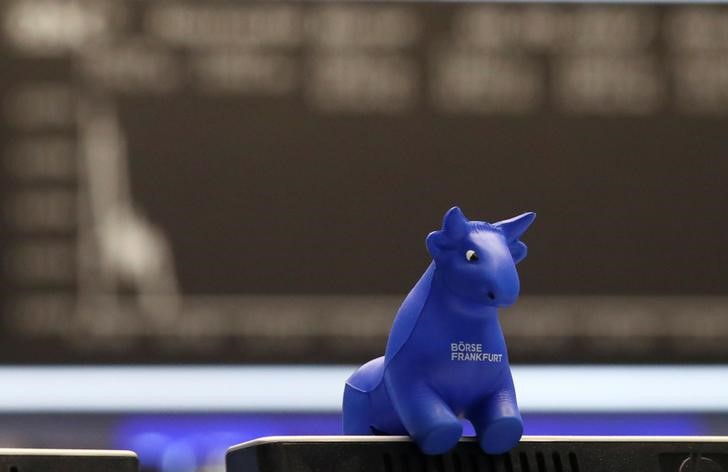Select Language

Investing.com -- Global stocks search for direction with Wall Street set to remain closed on Tuesday for the July 4 holiday. Meanwhile, Meta gears up to release a platform to rival Twitter later this week in a bid to attract users unhappy with Elon Musk's management of the social media site. Elsewhere, China unveils export controls on two key minerals in the latest development of an ongoing war over microchips between Beijing and the West.
1. Global stocks muted amid U.S. holiday, light data calendar
European and Asian stock markets hovered broadly around the flatline on Tuesday as investors were searching for cues in a light data calendar and a U.S. holiday.
At 05:07 ET (09:07 GMT), the DAX index in Germany slipped 6 points or 0.04%, France's CAC 40 rose by 3 points or 0.05%, and the pan-European Stoxx 600 gained 1 point or 0.23%. In the U.K., the FTSE 100 index edged up by 8 points or 0.11%.
The muted trading in the region comes after shares in Asia moved in a flat-to-low range, with a string of weak data prints from major economies denting risk appetite. Japanese stocks, in particular, slid from 33-year highs, in a sign that a recent rally in equities in the country may be stalling.
Elsewhere, China's Shanghai Shenzhen CSI 300 and Shanghai Composite posted small increases, while the KOSPI in South Korea shed 0.35%.
Markets on Wall Street, meanwhile, will be closed today for the Independence Day holiday.
2. Meta's Twitter rival
Facebook-owner Meta (NASDAQ:META) is set to unveil its answer to Twitter later this week, according to a listing in the Apple App Store, piling pressure on Elon Musk's social media company to retain users who have become disgruntled over the billionaire's management of the business.
Meta's new service, Threads, will launch on Thursday. The "text-based conversation" app, which will be directly linked to Meta's mega-popular photo-sharing platform Instagram, claims that it will be place "where communities come together to discuss everything from the topics you care about today to what'll be trending tomorrow."
The release of Threads could prove to be yet another challenge for Twitter. Users have already begun to seek alternatives to the platform in response to controversial decisions taken by Musk, who bought the company for $44 billion in October.
Most recently, Musk announced that limits will be placed on the number of posts that can be viewed, saying it was necessary in part to "address extreme levels of data scraping." The decision was widely slammed by users, many of whom pay monthly fees for increased prominence on the site.
3. China curbs exports of semiconductor metals
China has restricted access to exports of two crucial minerals used in the creation of computer chips, in the latest salvo in the war over semiconductors between Beijing and the West.
According to China's Ministry of Commerce, the minerals gallium and germanium will be subject to unspecified export controls starting next month. The U.S. has said the metals are crucial in the production of microchips, military equipment, and communications.
In a statement, the Chinese ministry said the measure will help protect "national security and interests."
Meanwhile, the Wall Street Journal reported on Tuesday the U.S. is also preparing to place restrictions on Chinese companies' access to cloud computing services, including those of Amazon (NASDAQ:AMZN) and Microsoft (NASDAQ:MSFT).
4. Supply cuts push up oil
Oil prices climbed on Tuesday, as traders weighed increased supply cuts by key exporters Saudi Arabia and Russia against signs of weakening global economic activity.
At 05:10 ET, U.S. crude futures traded 0.70% higher at $70.49 a barrel, while the Brent contract added 0.74% to $75.39 per barrel.
Saudi Arabia announced on Monday it will extend its recently announced 1 million barrels per day cuts to August and potentially beyond, while Russia also said it will trim its oil exports by 500,000 bpd.
However, any gains are likely to be limited with U.S. markets on holiday.
5. RBA keeps interest rates steady
The Reserve Bank of Australia has decided to maintain its cash rate at an 11-year high of 4.10% on Tuesday, as it attempts to gauge the impact of the 400 basis points of hikes since last May on the broader economy.
But Australia's central bank flagged that further tightening may still be needed to bring down elevated price growth. Inflation rose by 5.6% on an annual basis in May, according to official data, although this was slower than a recent peak of 8.4% in December.
"Inflation is still too high and will remain so for some time yet," warned RBA governor Philip Lowe in a statement.
The RBA is one of several central banks to embark upon a campaign of aggressive borrowing cost increases recently; the trend that has been a major driver of trading sentiment throughout 2023.

